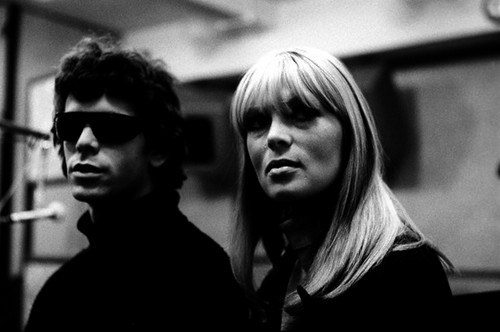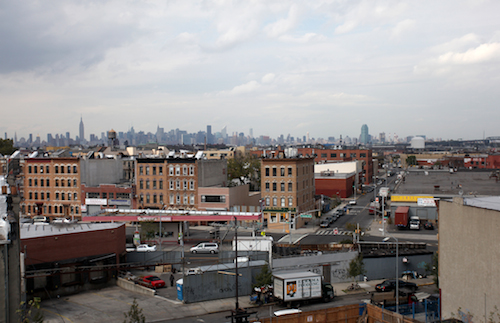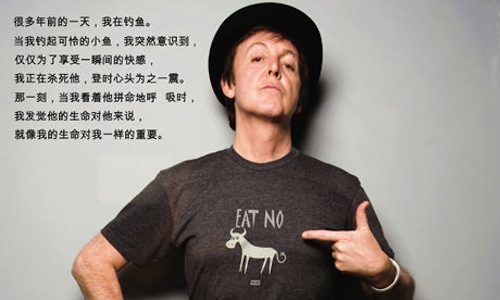The problem with internet journalism is that you never know whether you’re reading about a thing that is happening all around you or just hearing an echo. Case in point: “rolling coal,” the practice of modifying a truck to force extra fuel into the engine and produce billows of black smoke. Much like the knockout game, it is either a thing that jerks across the nation are doing because they hate the environment, or a legend we’re embracing because we consider ourselves victims of a world gone mad. Rolling coal is news or hysteria. It started with this article in Vocativ, which Dave Weigel wrote about in Slate on Thursday, causing everybody to write about it over the weekend.
Category Archives: Being Cool
Florent Morellet on being cool in Bushwick
The best stories in the New York Times are not technically news. For example, Florent Morellet, the founder of the Florent bistro in Manhattan’s meatpacking district, is moving to Bushwick essentially to be cool. The meatpacking district was industrial and vaguely dangerous when Florent opened in 1985, just like Bushwick is or was at one time. But when? Much as the meatpacking district is now as far from the mean streets as it could be, with its bridge-and-tunnel nightclubs and Apple store, Bushwick is of dubious currency. It’s definitely not as gentrified as Little West 12th Street, but it is not the same place it was in, say, fall of 2000. That’s when I lived in Bushwick, in a two-bedroom walkup that rented for $750. If you direct your attention to page three of the Times article, you will see that the average rent for a one-bedroom in Bushwick in 2013 is $1,950.
A story I often tell about Lou Reed

Lou Reed and Nico, circa 1965
I saw Lou Reed three times when I lived in New York. Once was in the now-defunct Around the Clock diner at approximately 4:30am, where he looked like a photograph of Lou Reed that had been taped to a booth across the room. I was impaired, so that one might have been on me. Once was outside Yaffa Cafe. And once was when he played briefly at Performance Space 122, and I ran sound.
He was fresh off a series of shows at Joe’s Pub, the smaller venue in the Public Theater, where he had reportedly fired not one but two sound operators. Lou Reed was not, at that time, in charge of personnel at the Public Theatre, but he had insisted that those two techs be fired as a condition of his continued engagement. My friend Duane told me the story with his usual glowing eyes.
“He got a guy at Mercury Lounge fired, too,” Duane said. “And I guess he fired his touring engineer this summer.”
It was Duane’s assessment that Lou Reed had fired every sound operator he’d worked with that year. The New York technical theatre industry amplifies everything, so to speak, so it was impossible to know how much of this report was true. Sound operators generally understand the world as an unfair struggle between talent and techs, in which talent would obliterate techs completely but for their ethical superiority. Still, Lou Reed was not known for his easygoing demeanor.
Also, I was not a skilled sound operator. I had a good ear and I remembered what people who knew what they were doing had told me, but Steve Albini I weren’t. I assumed every sound problem was the result of a blown crossover, and from there I went on bullshit and conjecture. Probably, Lou Reed would play “Satellite of Love” through my mix and hear his signature dry, spacey sound as a fart blown through a trumpet, and then he would fire me.
I had taken Duane’s advice and started smoking about a year earlier, and by that time I was up to a pack a day. We started load-in around 10am and finished our rough sound check around four, at which time I ran out front to smoke a Lucky. PS 122 had a giant steel gate about ten feet in front of the front doors, from the time when the East Village was a vibrant center of both performance art and stabbing, and it made a kind of enclosure for the smokers. I had just finished lighting up when I was joined in that steel cage by one L. Reed.
He didn’t look happy to see me, either. I briefly considered discarding my Lucky and going back inside, but that would have been weird. I offered him my lighter at roughly the same moment he got his lit. Then I was quiet. Then I said that I didn’t want to make him uncomfortable, but I was really happy to be working with him, and he had symbolized New York for me when I was a kid and didn’t really know what the city was like, so I considered all of this a lucky chance that I would probably tell people about later, and I hoped he liked the mix.
“Yeah,” he said. “It sounds good.”
Then he looked out over the cage in a way that indicated he was thinking about German art or transsexuals and didn’t want to talk anymore. I finished my Lucky and went inside. That night he played his songs and then went off to keep being Lou Reed, and I stayed and cleaned up.
I have told the story so many times, with exaggerations deemed appropriate to so many different contexts, that I cannot reliably say how much of it is true. My memory of what he looked like is problematically entangled with Eric Bogosian, whom I also met that week and who looked kind of the same. I remember Lou Reed the same way I remember New York: frightening, charged with meaning that may not strictly have been present, smaller than I expected. We will not see those old icons again.
Please help me understand this Ghanan music video
httpv://www.youtube.com/watch?v=b2HSo3yywDU
Jason McMackin implanted this song in my brain via the demon Facebook, and now I am periodically blurting out “Uncle Obama!” before falling into silent recrimination. It’s subtle, but this song about how a man named Uncle Obama has an enormous banana that Sister Deborah would like to feed to her monkey contains a double entendre. Yet so many questions go unanswered. It can’t be a coincidence that this Ghanan Milton Berle is named “Obama.” And who is Sister Deborah? And how is this song being received in Ghana, which has historically been kind of conservative?
A strange writ from the Daily Caller
I put little stock in the interpretation of dreams. I also reject the notion that people say what they really think when they’re drunk, that Freudian slips are bursts of honesty, and that the true mind of the Republican Party is expressed at its fringes. The Tea Party and Infowars.com do not tell us what conservatism has been thinking all along. They tell us what we have been thinking of conservatism all along. Like dreams, the communications of America’s resurgent right are notable for their disconnection from reality, not their insight into it. If you would like to glimpse a veritable Neverland, check out Mark Judge’s call for conservatives to embrace rock and roll. It is two years old and utterly irrelevant, like your recurring nightmare about getting an erection during swim lessons, but it is affecting nonetheless, like same. Insane quote after the jump.



